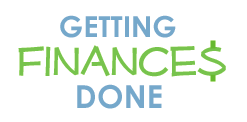Benefits of a Cash Budget – Part 2
Written by SamBe sure to check out part 1 about the benefits of a cash budget. In that article I explain how cash is the ultimate tool to help you control your spending and staying within your budget.
In part 2, I explain how budgeting will help save you time in the budgeting process.
How Cash Will Cut Your Budgeting Time By 80%
Think for a second about entering transactions into financial software like Quicken or YNAB. What are most of the transactions? By far the majority of the transactions come from categories like groceries, household, or entertainment. They are purchases at the grocery store, or walmart, or the corner convenience store. What if you took those transactions away. For most people, there are only a handful or two of transactions left that occur every month. You might have utilities, a cell phone bill, a few gas transactions, but that’s about it.
Most of Your Transactions Come From Just a Few Categories
This is a classic 80/20 example. 80% of your transactions come from 20% of your budget categories. In fact, I would guess that for many people it’s more of a 90/10 rule. 90% of their transactions come from 10% of the categories. If you’ve used financial software in the past, go check this out and see if it holds true. In fact, leave a comment and let me know if it’s true. I know for us it IS true.
Now I want you to think about the time you spend budgeting every month and what that time is spent on. If you’re like us it’s spent on entering and/or categorizing transactions from the previous month. It’s spent tracking down transaction #x and finding out what it was for. Either you don’t remember or your spouse spent it and he/she doesn’t remember. You spend time tracking down missing receipts. It’s all a big mess.
Well all of that craziness doesn’t have to be. In fact, I’m going to give you permission to stop entering every transaction. How can I do that? Well let me ask this: why do you need to enter all those transactions? Do you really want to know how much you spend on milk every month? Do you ever really care to know on an itemized basis what individual items you purchased in your grocery category? I don’t think that’s the case. If you think about it, all you really care about is spending the amount you want to spend in any given category. Well I’ve just shown that you can accomplish this goal by using cash. You don’t accomplish this goal by tracking every little thing, if fact, doing so is a lag measure and won’t have any impact on how much you spend next month. You’ll just go through the same process taking a lot of time and experiencing the same or similar results.
One Entry To Rule Them All
So am I saying that we don’t enter in our grocery transactions? That’s exactly what I’m saying. We have one entry in YNAB that is a cash withdraw for our grocery category. We don’t keep receipts, we don’t enter individual transactions. And do you know what? We have achieved our goal of staying within our budget more frequently and consistently than we ever did tracking everything.
To be more specific, we have one cash withdraw, or sometimes two over the course of the month that cover a number of cash categories. At the end of the month, we may have as little as 10 total transactions in our register for the month and most of these are for automated transactions that are easy to identify, categorize and reconcile. It has literally changed our budgeting lives.
My cousin is a great example of how using cash can decrease your time spent budgeting. She pulls out cash for all of her non-automated expenses. She doesn’t even split the money into categories. She has such a good sense of how much money they need in the month for the various categories that she can consistently stay within budget even without categories. At the end of the month, she has roughly 10 total transactions (if I’m remembering correctly) to deal with in reconciling her budget. Talk about quick and easy. Now I wouldn’t recommend lumping all your cash together at first, but as you get a better intuitive grasp on your spending over time, you can easily start combining your cash categories like she does.
The Myth of Tracking Everything
Now I can anticipate how many of you are responding right now. Your mind is rebelling against the idea that you don’t need to track every single transaction. It’s true the idea of tracking everything has been drilled into us by many financial gurus over time. In fact, I’m reading a book called Your Money or Your Life
that emphasizes the importance of tracking everything. While it’s a good book in general, I think the advice to track everything is misguided.
Let me ask, what’s so important about tracking everything? Isn’t the reason you want to track so that you can control your spending? Does tracking every transaction help? When I ask myself these questions it ultimately comes down to not overspending. As long as I’m achieving that goal, it doesn’t really matter if I have a record of every transaction.
I’ll admit there can be some benefit to detailed tracking. For example, you could do a detailed micro-level analysis of your spending. Doing so could produce some valuable, if not interesting results. It could even provide some useful insights that may help you change your behavior. For example, many people are shocked by how much they spend eating out if they don’t track that separate from their grocery category. However, doing this type of analysis usually won’t change your behavior and once you’ve found areas in which you’ve overspent, it’s too late to go back and change it. The damage is already done.
If you’re an analytical person and really want to do a detailed spending analysis, go ahead and do it, but limit it to one or two months and you should get all the value you need from it. In general, I don’t think this type of analysis is necessary and prefer a top down approach rather than a bottom up approach as I discussed in my 10 Secrets to Marketing Success Podcast in week 3.
If you’re really concerned about overspending in a particular area, rather than tracking everything in detail, make that area its own category and take out only the maximum amount of cash you’re willing to spend.
The Psychological Advantage of Cash
The biggest psychological advantage of using cash is that it helps restore your connection with money. But there was another, unanticipated advantage for me and Emily. For years Emily always felt frustrated because I was a spender and she was a saver. Actually, that’s not quite right. Emily wasn’t necessarily a saver, but she didn’t feel like she could spend money freely because she knew I was already spending plenty and therefore didn’t feel like she could spend much more. She always felt either guilt or anxiety when spending money. By using cash, it gave her permission to spend. She had a very tangible indicator telling her it was ok to spend what she needed or wanted.
For me it was useful because I could decide ahead of time what my limit was and then throughout the month could see and be aware of that limit.
Your Action Plan
To take advantage of using cash in your budget to decrease the time spent budgeting simply take out cash for those categories in which you overspend or have a lot of transactions. Then over the course of the month don’t worry about keeping receipts or recording the transactions in your financial software. At the end of the month you’ll only have a handful of transactions to deal with and reconcile and you’ll be done in a flash.
It’s changed my life and it can change yours.
Posted in 12 Weeks to Fiscal Fitness, Budgeting, Cash | Comments Off on Benefits of a Cash Budget – Part 2


 Subscribe via email
Subscribe via email  Become a fan
Become a fan Subscribe via RSS
Subscribe via RSS Follow me
Follow me